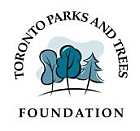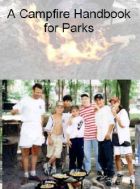
Pages in this Folder:

Related Folders:
See also Department Site Map
This website was developed in 2001 thanks to a grant from the Toronto Parks and Trees Foundation.

Notice: This web site is an information post and a forum for the community that uses the park, and to some degree for the surrounding neighbourhood. The editor of the web site reserves the right to post parts or all of any letters sent to the web site. If you do not want your letter posted, please let us know when you e-mail us, and we won't post it.
Comments?
For the basics, see
- Website & Privacy Policies
- How To Get Involved
- The Role of the Park
Search options:
Department Site Map
Custodians:
posted March 13, 2007
Whose parks are they anyway?
On January 26, 2007, the existing campfire permission in Dufferin Grove Park was cancelled. Thirteen years of campfires at the park with no injury, and suddenly they were stopped!
The Parks supervisor was concerned about the safety of having all those campfires in parks, and unhappy about their “inadequate protocol.”
When the order came to cancel the campfires, Dufferin Rink staff had to call all the people planning birthday parties or family get-togethers around campfires, telling them their gathering was off. (The staff said it was not a happy job, making those calls.) One woman wrote a protest e-mail to the Parks supervisor, so he let her have her campfire after all, even though everyone else was banned. A new, uniform protocol, now meant to apply across the whole city, was devised, rewritten, and rewritten again. The first meeting to discuss the new fire protocol didn’t include any Dufferin Grove Recreation staff or park friends. The next two meetings allowed two recreation staff to come, but still no community people.
All was confusion. One day it seemed that all campfires would revert to the jurisdiction of the central permitting office, costing $53.50 each time, with no recreation staff supervision. Then it seemed that recreation staff would have to be present every minute to oversee the campfire groups – a staffing expense for which there is no budget (and no need). It was impossible for park friends to get a place at the table, to be part of the discussion.
An e-mail to ‘campfire friends’ brought the letters to the Councillor and the mayor’s office which are excerpted in the campfire handbook above. Four days later, and still before any new rink protocol was offered for public presentation, the Park Supervisor called Dufferin Rink to tell the Recreation staff that the campfires had been temporarily restored. This would be in effect for a weekend, or maybe even for a month. The rules would be the old fire safety rules that have been in place for thirteen years, now renamed the “Pilot Project” rules.
Meantime, meetings continued. As time went on, e-mails began to accumulate. Only some of these e-mails were sent to me or carbon copied to me, so the chronicle that follows is a bit like looking through a keyhole, with only my e-mails clear to me and the staff exchanges spotty. Even so, I have enough to make a twenty-page narrative that I’ve called “The campfires of bureaucracy.” It gives an idea of the twists and turns that follow when open conversation is excluded and orders are unilateral. The “f” word reared its head: failing to meet conditions, failure to comply; and “p” words peppered the e-mails -- Permits, Pilots, Policies, Protocol, Procedure, Process. Thirteen years of campfires at Dufferin Grove Park were made to sound like an illicit activity. Although the park campfires were established and have been maintained for many years with the explicit blessing of both the Fire Department and Parks and Recreation management, the new wave of Parks management seemed to find that hard to credit. So their first step was drastic: to halt all the campfires. Only then did they begin talking, still in a very limited way that mostly kept park users out of the conversation as outsiders.
This development has been both astonishing and frustrating to park friends. There’s an urge to say “I don’t need this,’ and leave. But when citizens are met with a series of bureaucratic “No’s” in their public spaces – not only for campfires, but for so many other initiatives too – and they turn away, their parks often become orphans. Following the bureaucrats and challenging them to open up to citizens is a difficult alternative, but it has a chance of working out better in the long run.
Tracking the bureaucracy starts with finding out who’s doing what with their power. To that end, here is the story so far. Read more >>


 Printer friendly version
Printer friendly version
